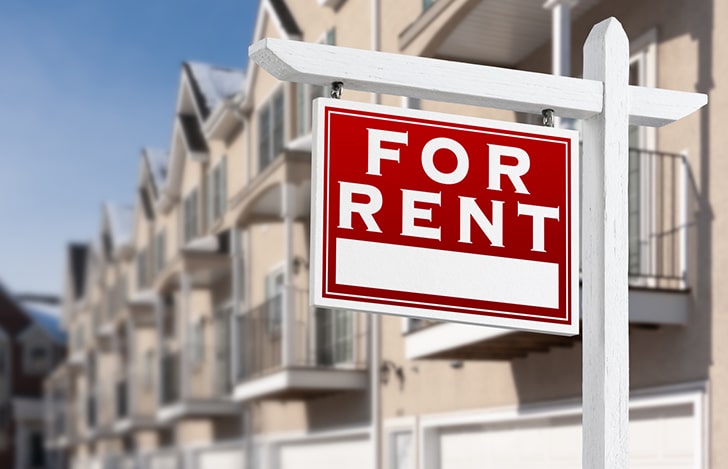How to Deal with Tenant Harassment

06Jun
How to Deal with Tenant Harassment
The term “tenant harassment” gets thrown around a lot by tenants to describe how their landlords treat them. In reality we each have our interpretation of what makes something harassment. But in San Francisco there is a law that actually spells out what unlawful tenant harassment is. In this article we’ll discuss how the law deals with tenant harassment, tenants' rights when being harassed, and best practices for dealing with harassment.
What is Tenant Harassment?
When you think of harassment most people think of name calling, threats or general creepiness. But the law defines tenant harassment even more broadly. The San Francisco Rent Ordinance identifies fifteen categories that qualify as unlawful tenant harassment. These include cutting off a tenant's heat, water, or electricity; failing or refusing to make needed repairs; refusing to cash a tenant's rent check for more than 30 days; entering a tenant's home without proper notice; and threatening a tenant for the purpose of forcing them to move out.
What Do You Do If You're Being Harassed By Your Landlord?
Here are a few common scenarios and some ideas for how to deal with them. Of course, as always, because each situation can be very different we strongly recommend seeking out legal advice tailored to your unique situation before taking action.
Scenario 1: Failure to Make a Needed Repair
Chris, an elderly man, has been living in his rent controlled apartment for the last 20 years. Recently, a pipe in his kitchen burst and the carpet in Chris’ dining room became flooded as a result. Landlord repaired the broken pipe and shampooed the carpet. However, two weeks later, Chris began noticing a foul odor in his living room. Chris promptly reports the odor to his landlord, but the landlord does nothing and brushes it off. Over the next few months, the odor remains and Chris begins having trouble breathing and is diagnosed with asthma by his doctor. Chris complains again but landlord continues to do nothing.
ANALYSIS: Harassment. Here, the landlord’s failure to do anything when Chris first reported the foul odor, as well as landlord’s continued failure to do anything, constitutes tenant harassment.
SUGGESTION: In addition to complaining to your landlord in writing about their failure to act, consider taking photos of the problems, hiring a certified mold expert to test the unit for mold, and potentially filing a complaint with the Department of Building Inspection or Department of Public Health, both of which can put the screws on your landlord to take action or face hefty fines.
Scenario 2: Landlord Refuses to Cash Checks
Anne has been living in her rent controlled apartment for the past five years. In the last year, she has made numerous requests to her landlord for various repairs. Landlord responded timely to her requests, but landlord stopped cashing her rent checks six months ago. Anne has been writing to landlord each month confirming that he received her rent checks, but Anne never received any response. However, ten days ago, landlord tried to cash all of her rent checks for the past six months without letting Anne know and all 6 checks bounced.
ANALYSIS: Harassment. In this scenario, the landlord’s failure to cash Anne’s rent checks thirty days after they received them is a form of tenant harassment.
SUGGESTION: It's always a good idea to keep tabs on your bank account, but here's one more reason to do it. If you see that your landlord is not cashing your checks, contact them in writing and demand to know why they haven't cashed it. Sometimes it's a landlord's way of trying to catch you without enough money in the bank so they can then try and pursue an eviction. By putting this in writing you can make it clear that you are trying to ensure the rent is paid and putting the landlord in the position to justify their failure to cash your rent.
Scenario 3: Landlord yells at tenant and comes to property without notice
Steve lives in a single family house. His landlord often comes by the house and goes into the garage and does gardening in the backyard. The landlord never provides notice to Steve and often interrupts him while he's in the backyard. After a while she starts knocking on the door and yelling at Steve about minor issues. Upset by this Steve asks her to put any complaints she has in writing and to stop yelling at him and to give notice when she'll be in the yard. She refuses and continues to stop by every few days to yell at him and use the backyard.
ANALYSIS: Harassment. Here the landlord's access of the garage and backyard is not clear cut harassment as these are potentially common areas depending on how the lease describes them. However, a landlord can abuse the right to use a common area still due to their actions. The landlord has no right to continually interfere with Steve's quiet enjoyment by coming to his door and shouting at him and this qualifies as unlawful harassment.
SUGGESTION: What Steve did was reasonable. However, it would be good if he then followed up his statements with a letter memorializing what the landlord was doing and reiterating that she should put any complaints she has in writing to him rather than bothering him unannounced.
What if Your Landlord Continues To Harass You or it Gets Worse?
If your landlord doesn’t stop harassing you may eventually need to move out of your home and file a lawsuit. However, as this is a drastic measure, be sure to consult with a tenant's rights lawyer before taking such a step. Depending on the behavior of the landlord you may have grounds to sue your landlord for substantial monetary damages but you want to make sure you exhaust your options before resorting to this.
Tenants dealing with more severe verbal abuse or even physical threats may consider calling the police to the scene to create a record, filing a police report, or at the most extreme, possibly seek a restraining order. The better the record you have to support your claims for harassment, the less your landlord will be able to deny wrongdoing.
Related Posts You Also May Like
Get Started
For more information or to discuss your legal situation, call us today at (415) 649-6203 for a phone consultation or submit an inquiry below. Please note our firm can only assist tenants residing in San Francisco, Oakland & Berkeley.





